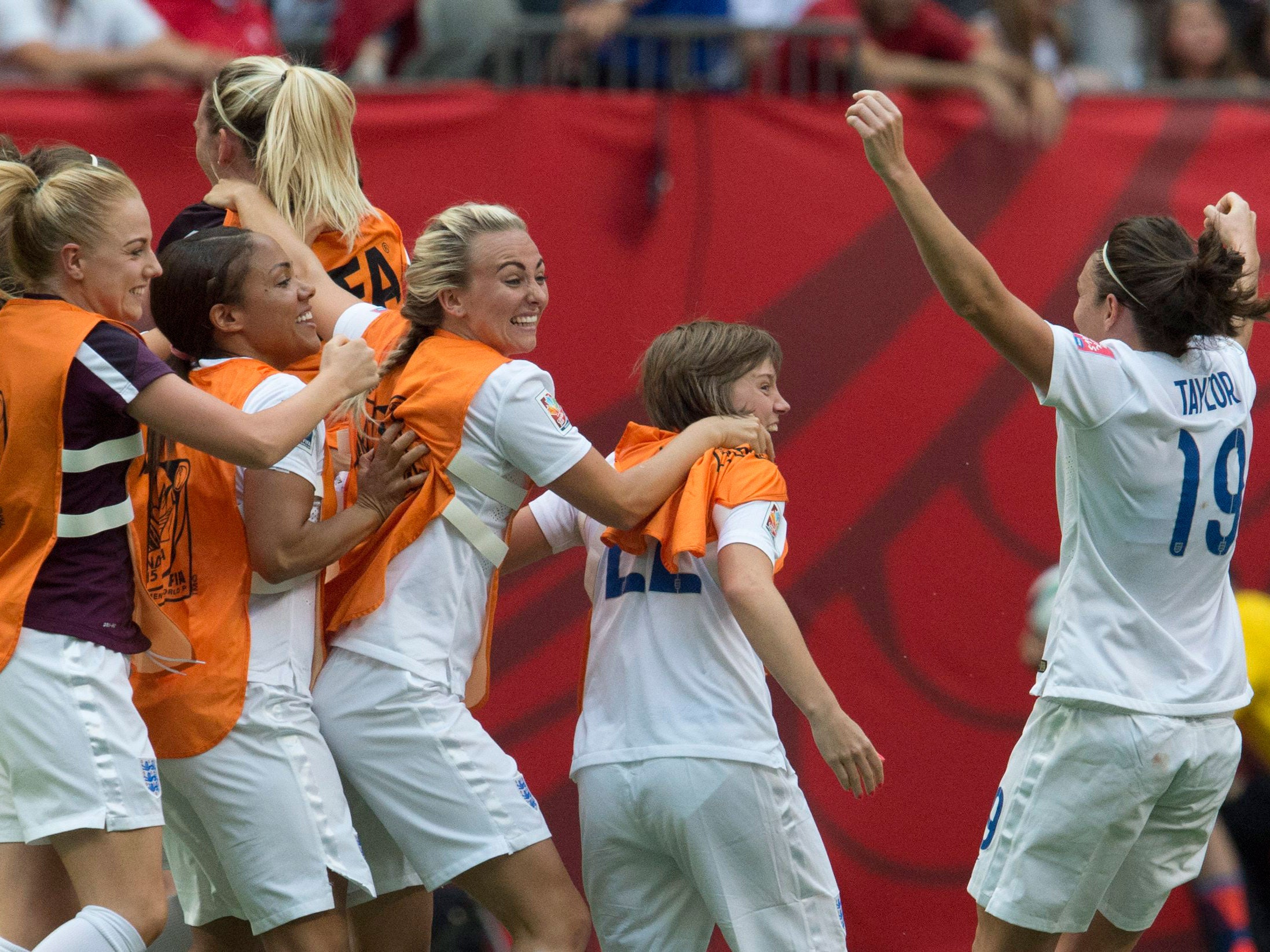I’ll support England’s women, but it’s not like men’s football – and that’s a good thing
Men’s football makes you psychotic, and your allegiance to a team obliterates morality


This is no time for a soundbite, but I feel the hand of football history on England’s shoulder. Its women will soon kick off against Japan in a World Cup semi-final, and as they are on the cusp of trying to reach the country’s first World Cup final since 1966, the tension is… well, in the strictest truth, the tension now is perfectly bearable.
Why this is so when many would now be gobbling anti-emetics before a men’s semi is an intriguing question with no simple answer. But at the risk of inviting some typically nuanced critiques on Twitter, it would be deceitful to deny a gulf in the emotional response.
This is by no means to disparage women’s football or the team’s success, let alone to affect a lack of interest. I was up until 2.30am on Sunday and welled up when England held doughtily on for a 2-1 win over the host nation Canada in the quarter-finals. I will keep the same hours when they meet defending champions Japan in Ontario at midnight tonight.
One thing I will not do, however, is the thing I did 25 years ago, a few hours before England’s last World Cup semi-final, against West Germany at Italia 1990. On holiday in Wales, I found a Catholic church in Cardigan, and prayed to the Virgin Mary for almost an hour. Had mother Mary come to me, speaking words of wisdom, she’d have said: “Enough with the praying. It’s the Hun you’re up against tonight in Turin, and some things are beyond even my lad’s miraculous powers. Let it be.”
She might also have asked what a Jewish atheist was doing on his knees, holding a candle and pleading for divine help against West Germany. To that question, there is a simple answer: men’s football makes you psychotic. Allegiance to a team, as supporter or player, distorts the senses and obliterates morality (even the most impeccably liberal of fans will welcome a rapist on to the pitch and a human rights abuser into the boardroom). It transforms the irreligious into the faithful, and the decent into sociopaths who would lay waste the cosmos for a penalty kick.
Women’s football is something else, and something better. The people playing it, after all, are women. Belonging to the emotionally developed, clearly superior half of the species, they tend not to trust in Bill Shankly’s saying that football is more important than a matter of life and death. Hugely competitive though they are, they give no impression of being engaged in a war without weapons.
There are other reasons why the women’s team, in its comparative obscurity, is so much more engaging than the men’s. One is that there is more chance of Ann Widdecombe trundling off the bench to propel a last-minute, 30-yard Exocet into the roof of the Japanese net than of the men reaching a World Cup semi this side, or any side, of Doomsday. Another is the amateurism and egalitarianism. Almost all of the squad are part-timers. The highest earning professional, captain Steph Houghton, makes less in a year (£65,000) than any male equivalent in a week. Defender Clare Rafferty is a financial analyst in the City. Midfielder Fara Williams was living in a hostel for the homeless when she made her debut.
They deserve more and better coverage from a phallocentric media which is content to pay lip service to their achievements. On the eve of the semi-final, the only World Cup story in several of Tuesday’s broadsheets concerned the incentive differential (for winning the tournament, the women are on a tenth of what the men were offered for lifting the golden trophy – ha ha ha – in Brazil last year). Meanwhile, the BBC has seen fit to deploy the dimwitted human foghorn Jonathan Pearce, rather than lead commentator Guy Mowbray, to cover England’s matches. For no reason other than condescension, it sticks a token man on the studio panels.
During the quarter-final against Canada, Pearce claimed to detect “hostility” from the home crowd, and even by his own standards of portentous misplacing a cliche, that was embarrassing. At this World Cup, the crowds are passionate but impeccably sporting, and bereft of the throbbing-necked apes you find wishing cancer on a referee who awards the visitors a disputed free kick at Wembley.
Perhaps this will change. If England’s women win the World Cup, perhaps a surge in the game’s popularity will make household names of them, and they’ll respond by buying Bentley convertibles in bulk and roasting teenage boys in boutique hotels. Maybe one day the malevolence and racism that bubbles under the skinny veneer of civility at Premier League grounds – and which would bubble over it within seven minutes of the stewards and CCTV cameras being removed – will infect it.
Somehow this seems unlikely. What makes women’s football so enjoyable is the same lightness and purity that prevents it being poisonously addictive. Just as Formula One lost most of its lure when safety improvements cut the death rate to zero, and as the visceral draw of boxing lies in the possibility of seeing someone seriously hurt, the source of football’s wicked addictiveness lies in its brutal amorality.
Whenever England’s men play, I do not want to watch – frankly, who does? You’d rather do anything else, which includes finding Grant Schapps in the next seat on a non-stop flight to Melbourne – but I must. The precise reverse is true with the women. Supporting them is an act of choice rather than a disease, which is one among various reasons why the men’s team cannot hold a candle to the women’s.


Join our commenting forum
Join thought-provoking conversations, follow other Independent readers and see their replies